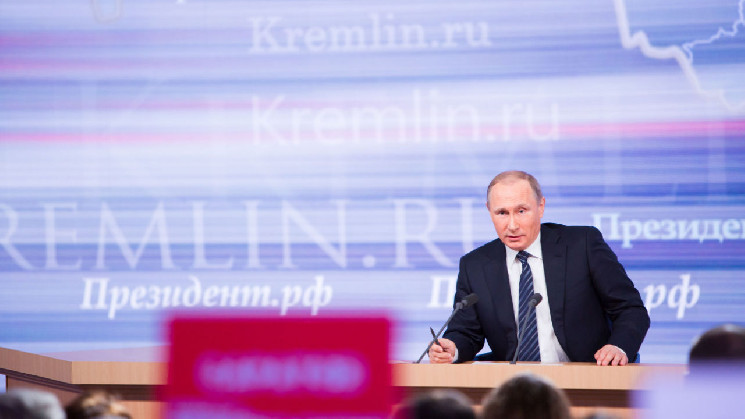The organization representing Russia’s crypto and blockchain sector has urged Vladimir Putin to spur regulatory efforts. The association fears the Russian Federation may lag behind other nations if it maintains its conservative approach towards new financial technologies.
Russian Crypto Businesses Want Putin to Engage With Regulatory Process
The Russian Association of Cryptoeconomics, Artificial Intelligence and Blockchain (Racib) has called on President of Russia Vladimir Putin to back the crypto community in shaping the country’s regulatory framework for cryptocurrencies and related technologies.
In a letter to the Russian head of state, its members warn that the government’s attitude towards digital asset regulation poses “serious risks of the economy lagging behind in the introduction of new financial technologies,” crypto news outlets Bits.media and RBC Crypto reported.
The organization insists that the current state policy does not allow Russian companies to take advantage of the potential of new financial instruments and forces them to relocate to other jurisdictions which entails direct financial losses for the treasury.
This “extremely conservative and prohibitive approach” may cause Russia to lose pace in the development of the digital economy and deprives the country of the opportunity to become a leader in the implementation of digital payment and accounting systems, according to Racib’s address.
Racib also reminds Putin about his meeting with IT associations in 2019 and the discussions about new legislation. However, the promised experimental legal regimes for fintechs are not used in reality, while the proposed amendments to the country’s law “On Digital Financial Assets” make it difficult to implement digital technologies.
The letter, co-authored by the non-profit partnership of software developers, Russoft, asks the president to call a meeting devoted to these matters with the participation of the crypto space. They also suggest establishing a working group to prepare a pilot project for the introduction of digital financial technologies, including in cross-border payments relevant for Russia amid sanctions.
 news.bitcoin.com
news.bitcoin.com
